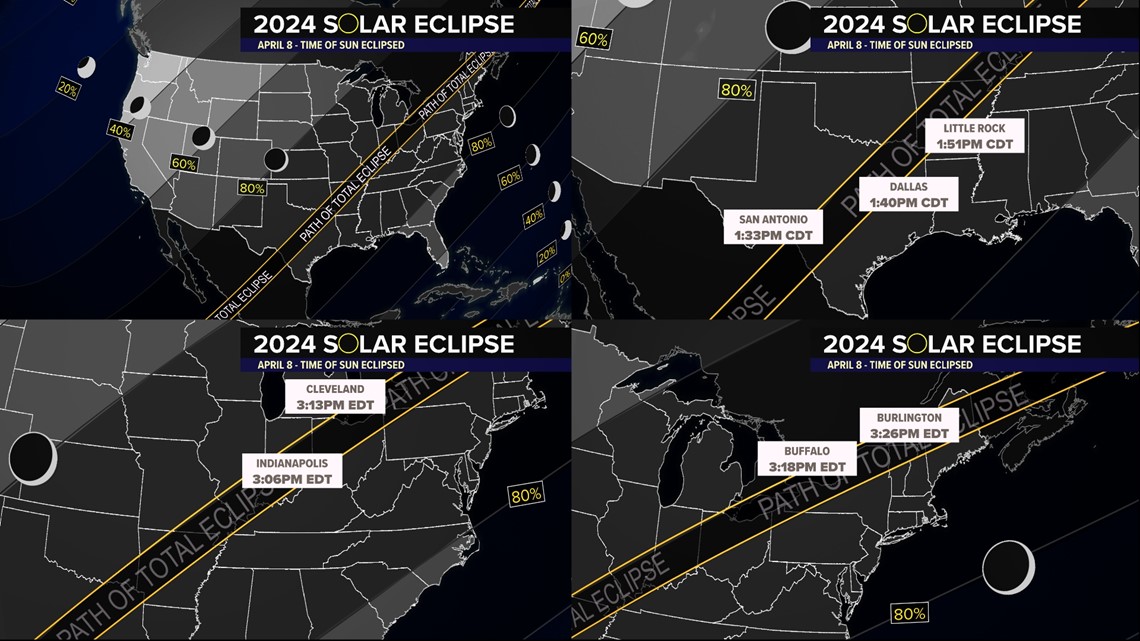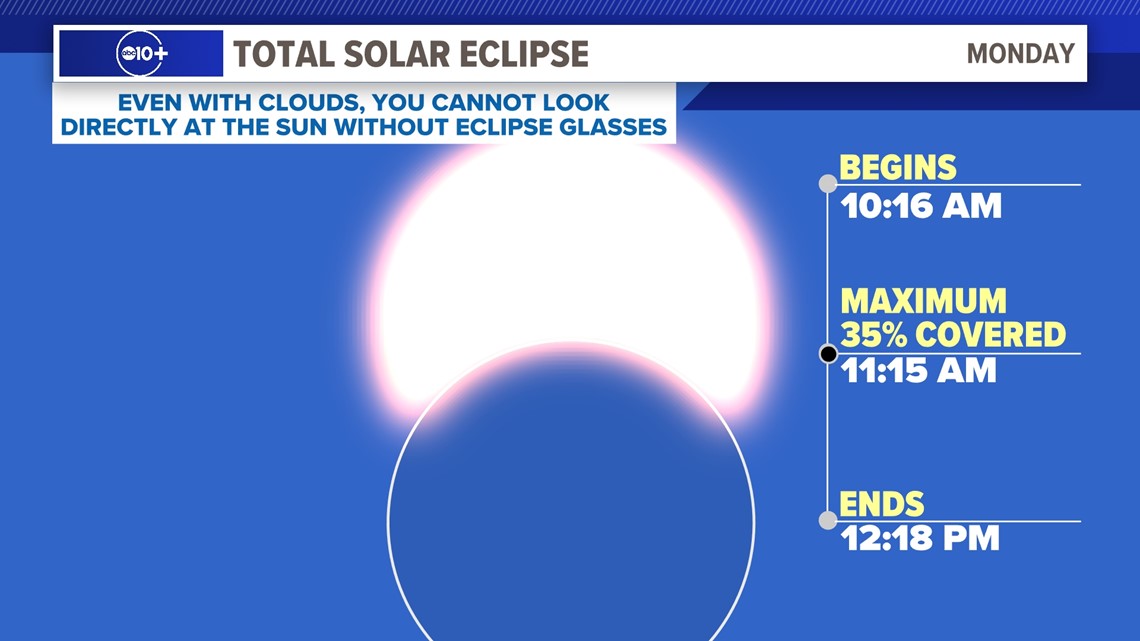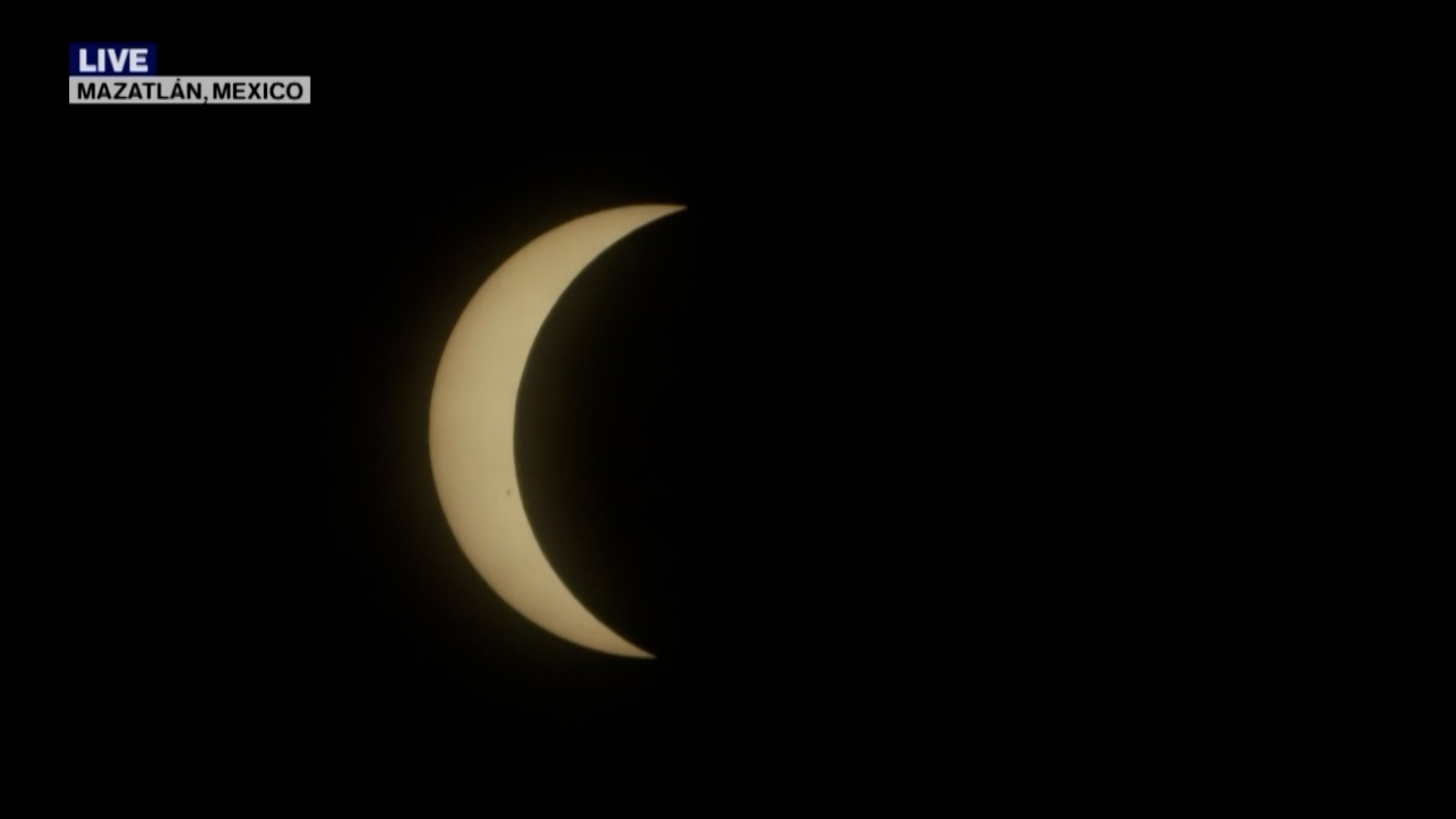SACRAMENTO, Calif —
The first total solar eclipse since August 2017 will pass over American soil on Monday, and although Northern Californians won’t have a front-row seat, it will be worth a look.
A total solar eclipse happens when the moon passes between the sun and Earth, completely blocking the face of the sun. The sky will darken as if it were dawn or dusk, according to NASA.
California is not included in the path of totality on Monday. The path of totality stretches from Texas to Maine, and the United States won't see another total solar eclipse until 2044.
In Sacramento, 35% of the sun will be obscured as the moon passes between it and the Earth. The 2017 eclipse peaked at 79% of the sun being covered and resulted in a mild darkening of the skies.


For more California coverage, stream ABC10+ on your TV for free:
► Roku - click here
► Amazon Fire - click here
► Apple TV - click here
Skies are expected to be clear thanks to high pressure overhead, and temperatures will be in the low 70s in the valley, 60s in the foothills and 40s and 50s in the Sierra depending on elevation. Unfortunately for many across the country, a low-pressure system moving across the central U.S. will produce cloudy conditions during the event.
The partial eclipse will begin in the Sacramento area at 10:16 a.m., peak at 11:15 a.m. and end at 12:18 p.m.


Timelapse from Mazatlan, Mexico of the path of totality:
Use this website to find when exactly the eclipse will peak in your location.
Eye protection is necessary to safely view the eclipse on Monday.
“Viewing any part of the bright sun through a camera lens, binoculars or a telescope without a special-purpose solar filter secured over the front of the optics will instantly cause severe eye injury,” said NASA.
Here are some tips on how to safely view a total solar eclipse. The Davis Astronomy Club will be setting up telescopes at Mace Ranch Park next to the Explorit Science Center in Davis (3141 5th Street) and MOSAC will be giving away eclipse glasses on Monday during the event and will also have telescopes available.
WATCH ALSO:

















